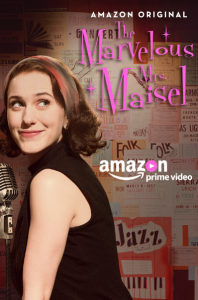Author Archives: Sara Fredman
March 8, 2019 by Sara Fredman
Luke Perry and the Mishna: A Love Story
Close to two decades ago, I sat with my cousin on the concrete structure separating Rockaway Beach from the street our grandparents lived on. It was September and we were waiting for Rosh Hashanah to begin. Now that I’m a parent, I can’t imagine letting a nine-year-old hang out at a deserted Rockaway Beach entry without adult supervision but the 90s were special—and I’m sure the adults were glad to have us out of their hair while they prepared for the holiday. Meanwhile, we were doing the essential work of engaging in the great debate of our time: Dylan vs. Brandon.
Neither of us can remember who took which side but looking back, I understand that this was my first time actively participating in pop culture, having the same conversation as many other people, at the same time. That participation was hard-fought and delicately-brokered. My modern Orthodox parents weren’t enthused by the idea of a show about teenagers and sex, so we made a deal. I, a nine-year-old child, would be allowed to watch this show featuring adults playing teenagers, as long as I attended the children’s Mishna class at our shul on Shabbat afternoons.
- No Comments
February 19, 2018 by Sara Fredman
Is Midge Maisel a Bad Mom? A Feminist Query.
 In a recent essay, Rebecca Solnit recalls a Q&A section of a talk she once gave on Virginia Woolf during which the main preoccupation of her audience was the question of whether or not Woolf should have had children. She describes her frustration, writing that “After all, many people have children; only one made To the Lighthouse and The Waves, and we were discussing Woolf because of the books, not the babies.”
In a recent essay, Rebecca Solnit recalls a Q&A section of a talk she once gave on Virginia Woolf during which the main preoccupation of her audience was the question of whether or not Woolf should have had children. She describes her frustration, writing that “After all, many people have children; only one made To the Lighthouse and The Waves, and we were discussing Woolf because of the books, not the babies.”
I thought of that anecdote recently while reading a blog post criticizing the Golden Globe-winning show The Marvelous Mrs. Maisel for its depiction of the titular character’s approach to motherhood. [SPOILERS AHEAD.] The show follows Miriam “Midge” Maisel as her aspiring stand-up comedian husband unceremoniously leaves her, and as she comes to the realization that she’s actually the one in the relationship with the talent for comedy. The Marvelous Mrs. Maisel is reminiscent of that other mid-century period piece, Mad Men, not just because of the fashion and social mores, but because of a deliberately delayed reveal. Just as we only find out that Don Draper is married with children at the end of the first episode, we spend most of the first episode of The Marvelous Mrs. Maisel watching Midge and her husband cavorting downtown and returning to their Upper West Side classic six late at night; we only find out that they have children two-thirds of the way through. This is a harbinger of things to come because it turns out that Midge’s parents, who live in the same apartment building, frequently watch the children, often overnight. This enables Midge to, as blogger Jordana Horn points out, “have very, very little to do with her children.” That the children are mostly out of sight bothers Horn because “Midge’s happiness and sense of self seem to derive almost entirely from her escape from the expected roles of a 1950s housewife and mother.”
Because I am a nerd medievalist, Horn’s perplexity that a show about a woman who is a mother does not focus on her motherhood reminds me of modern reception of what many consider to be the first autobiography in the English language, The Book of Margery Kempe.
- 5 Comments
 Please wait...
Please wait...